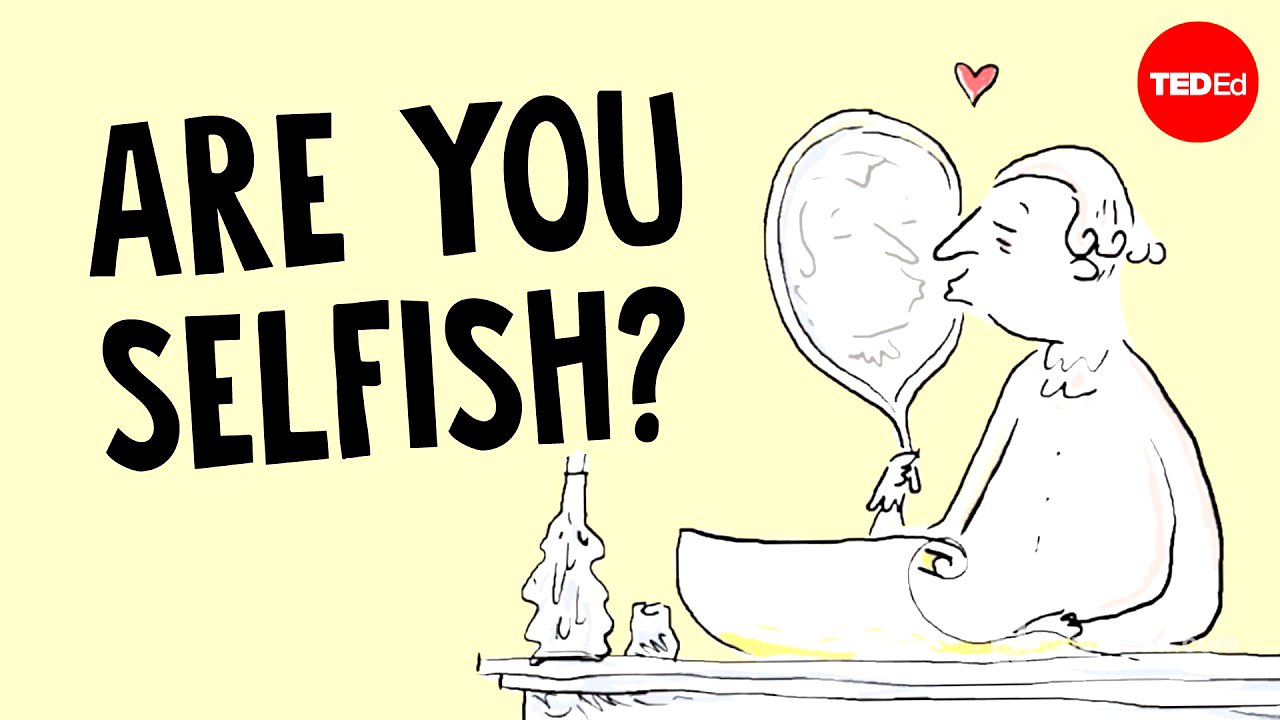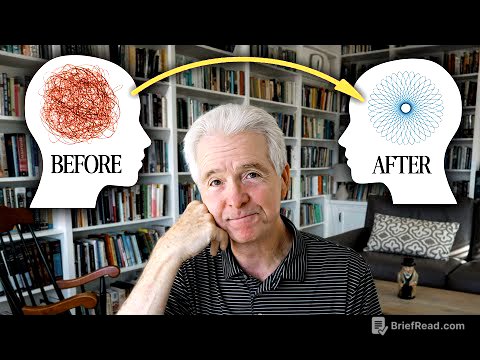TLDR;
This video explores the philosophical question of whether humans are inherently selfish. It examines the concept of psychological egoism, the views of philosophers like Kant and Rousseau on self-love, and Murdoch's idea that love and attention are the solutions to overcoming selfishness by truly seeing others.
- Psychological egoism suggests all actions are motivated by self-interest.
- Philosophers like Kant acknowledge the difficulty in proving actions are not driven by "a secret impulse of self-love."
- Murdoch argues that overcoming selfishness involves cultivating attention to see others and the world as they truly are.
The Cupcake Dilemma: Are Humans Inherently Selfish? [0:07]
The video starts with a scenario at a party, posing the question of whether to take the last cupcake, and introduces the philosophical debate of whether humans are inherently selfish. It highlights the perspectives of philosophers like John Stuart Mill, Aristotle, and Thomas Hobbes, who offer differing views on morality and self-interest. The central question explored is whether human actions are fundamentally driven by selfishness.
Psychological Egoism and the Debate Among Philosophers [0:55]
The video introduces psychological egoism, the idea that all human actions are motivated by self-interest, noting that few philosophers fully endorse this view due to evidence of self-sacrifice. It mentions studies showing that even young children exhibit helpful behaviour without personal gain. Immanuel Kant's perspective is presented, suggesting that even seemingly altruistic acts may be motivated by hidden self-interest.
Two Kinds of Self-Love [2:12]
The video explores different perspectives on self-love, contrasting Rousseau's "Amour de soi" (basic self-preservation) with "amour propre" (desire for recognition and social status), which he sees as a source of inequality. Aristotle's view is also presented, arguing that humans flourish by seeking the good of both themselves and others, suggesting true self-love involves working against selfish tendencies.
Overcoming Selfishness Through Moral Duty, Emotions and Love [3:01]
The video discusses how to overcome selfishness, presenting Kant's argument that moral duty helps transcend self-interest, and Rousseau and Adam Smith's view that emotions like pity and sympathy enable consideration of others' needs. It introduces Iris Murdoch's belief that love is the true solution to selfishness, defining it as the difficult realisation that something other than oneself is real.
Murdoch's Perspective: Love and Attention [3:42]
The video explains Murdoch's concept of selfishness as seeing oneself as the star and others as secondary. It uses the example of a discontented mother-in-law to illustrate how selfishness reduces others to caricatures based on one's own jealousy and insecurity. Murdoch suggests that with conscious effort, one can learn to see others as they truly are.
Cultivating Attention to See the World as It Truly Is [4:42]
The video elaborates on Murdoch's idea of love as recognising the reality of things outside oneself and introduces the concept of cultivating attention, inspired by Buddhist meditation. It suggests engaging in activities like art, language learning, or observing nature to direct attention beyond the self. The video concludes that by practicing attention, we can learn to see the world and others as they truly are, overcoming our inherent selfishness.









